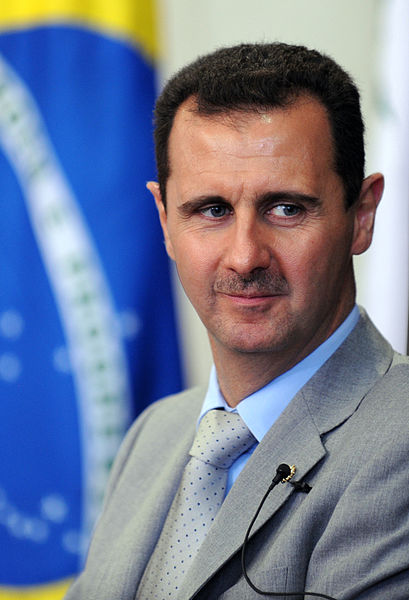By Heather Rutherford
The civil war in Syria has removed 9 million people from their homes, and has killed more than 100,000 in the escalating conflict. The clash between those loyal to President Bashar al-Assad and his opposition was in the escalating conflicts sparked by protests that descended into violence in March of 2011.
There are an estimated 1,000 armed opposition groups, and they collectively have as many as 100,000 fighters. While there are numerous rebel groups, they appear similar to groups that have sprung out of other disastrous conflicts, such as genocides. The question may not only be can we, the United States, prevent such a disaster, but how?
The concept of dealing with international criminal law is fairly new when looking at the timeline of law practice throughout history. The International Criminal Court, or the ICC, is defined as the first ever permanent, treaty-based, international criminal tribunal established to investigate and try individuals for the most serious crimes: genocide, crimes against humanity and war crimes.
“Treating an international crime is treating it as an individual conduct rather than state conduct,” says Natalie Reid, Esq., from the law firm Debevioise & Plimtpon in New York. Reid spoke at Suffolk University Law School on Monday about international law. “The ICC looks and functions in the way that many people, including common lawyers, would recognize criminal courts would be.” The ICC is, however, suffering growing pains.
The ICC’s treaty-based structure imposes that individual states who are signed on oblige to refrain from “acts which would defeat the objective and purpose” until they declare if they intend not to be a party. Currently, 122 states are signed with the Statute of the Court. In other words, “the court can only exercise its authority over crimes that are committed by nationals of or in the territory of a state party signed onto the statute,” said Reid. Syria is not a member state of the ICC.
However, Syria can only be a part of the ICC if it refers itself. The UN Security Council would need to refer Syria to the ICC in order for the court to even investigate any potential violations of international law. “There has been quite a discussion about whether the Security Council should refer Syria to the ICC, because Russia would not support such referral,” Reid said, “and the United States is discussing the creation of an ad hoc court just to deal with Syria.”
Ad hoc international tribunals have been created on a situational basis in the former Yugoslavia (ICTY) and Rwanda (ICTR) to prosecute individuals for crimes against humanity. There are two problems posed for the creation of an ad hoc tribunal for Syria in order to avoid jurisdictional conflicts. Reid explained, “First, this runs counter to the very intention of the creation of the ICC, a single body serving as universal jurisdiction for these circumstances. Second, there is a host of administrative issues.” Ad hoc tribunals have certain legitimacy concerns, where the ICC does not. They are hugely expensive and inefficient. Because of this, they struggle to be relevant and effective, seen in a tribunal case in Lebanon. “The were incredibly complex political circumstances and an absence of political will at an international level to truly support its activities,” Reid explained.
Apart from Syria, international crimes may be occurring in Crimea, a country between Russia and Ukraine. In early 2014, the situation in Crimea was proposed as the worst East-West crisis since the Cold War. “One of the things I find more fascinating about this area is the importance of precedent,” Reid claimed. Precedent in international criminal law is only partially what judges or courts have said before. “Here, it is the powerful hold that examples that have come before an event have on the collective imagination.”
“International criminal law exists at the intersection of law and policy.” Because it is relatively new and deals with these fundamental issues of who has the right and authority to exercise power, and the consequences of an abusive exercise of that power, states have become uneasy about treating it as something that is criminal. Therefore, the crime of aggression was included in the Roman Statute in 1998, but it was not defined until 2010, and that definition does not go into effect until 2017, assuming the ICC has sufficient support from the member states.
The definition of aggression currently in the Roman Statute as of 2010 is left to consideration when applying to events in Crimea, which is the “planning, preparation, initiation or execution by a person in a leadership position of an act of aggression.”
Aggression is a potential crime, but the less that a situation looks like something that we are used to thinking of, it’s likely we will think it’s a situation that international criminal law could deal with. To put in plain words, Reid explained that “the less it looks like the Holocaust, the less likely they are to think that it is an international crime.” If you’re not dealing with forcible displacement, murder, persecution, or the use of weapons that are banned by international treaties, people are less likely to treat it as something that belongs in international or domestic court.
“The other interesting thing about Crimea is returning to the idea of precedent, it captures the imagination of the conceiving of things and assuming an appropriate response. People involved with international criminal law like to find the silver lining, and say things such as ‘at least Russia is using legal terms’, or ‘at least they are holding referendums.'”







